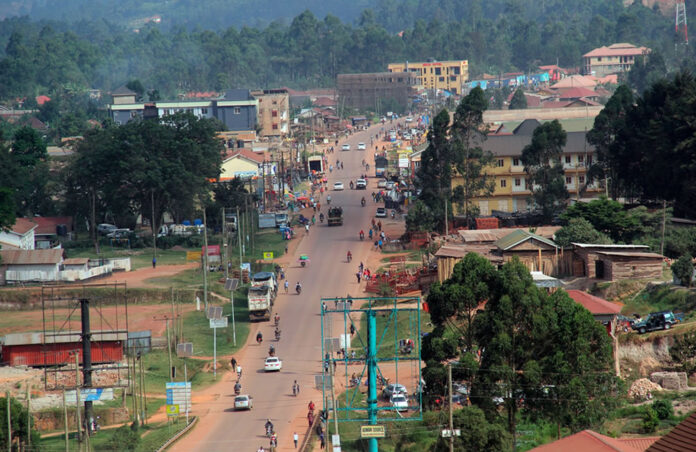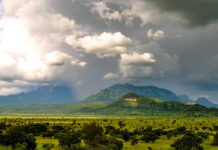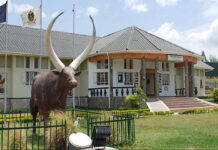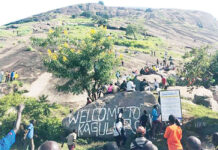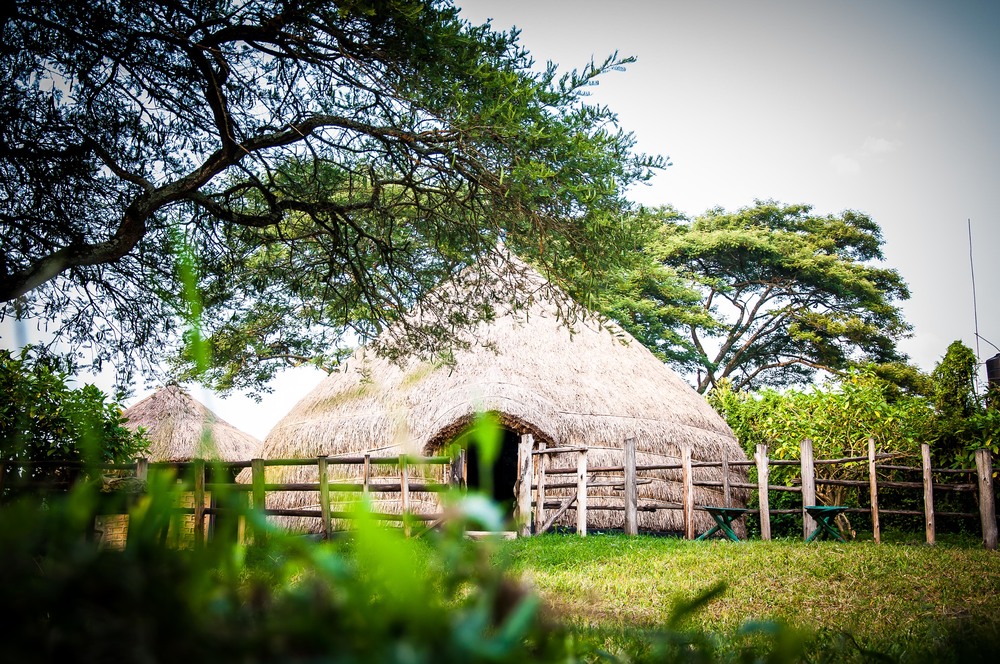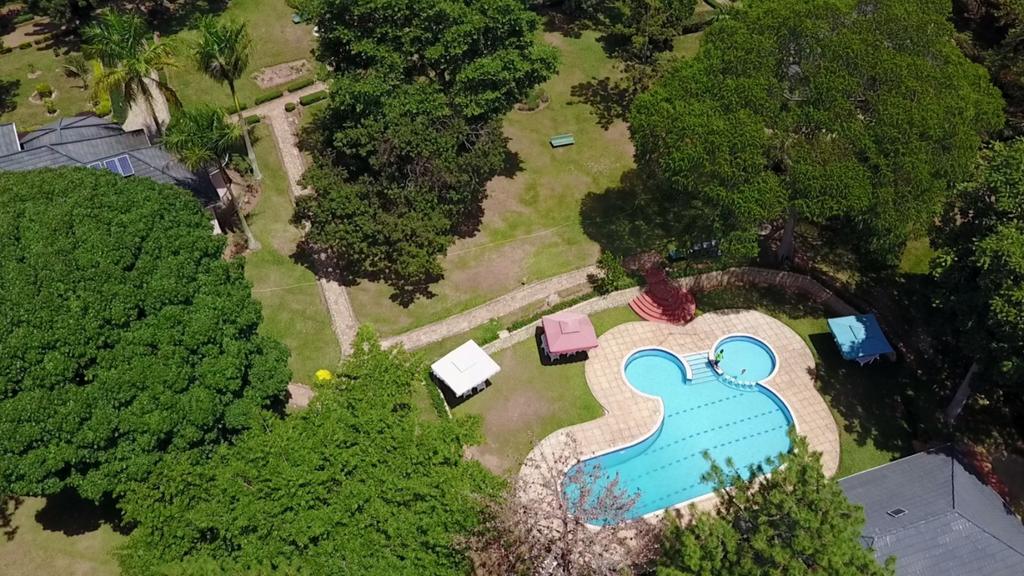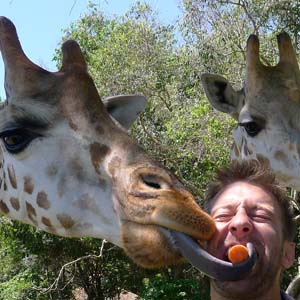Kabale Municipality located in South Western Uganda is one of the old thirteen municipalities in Uganda. Kabale Municipality borders with Kitumba Sub-County in the South and West, Bubaare in Rubanda district to the north, and Kyanamira to the East.
Kabale Municipality is the main center of activity for the Kabale district and entire South-Western Uganda. It is a vibrant town and a regional transport hub because it has the main road links to Kisoro, Kanungu, Kihihi, Ntungamo, and Rukungiri districts. It also serves as a transit to Rwanda through the Katuna border situated 22 km away from the town and the Democratic Republic of Congo through Kisoro at Bunagana border post.
Getting to Kabale from Kampala requires a total of about 6-7 hours on the road since it is about 409.1 km via Masaka Rd and Kabale – Mbarara Rd.
Kabale derives its name from a small stone that originated from a piece of iron ore that was so heavy and attracted people from far and wide to appreciate it. It was first visited by the then colonial district administrator G.E.E Sullivan.
Perhaps due to its picturesque characteristics such as the undulating hills and the cool weather, the colonial government identified the current location of Kabale municipality as the suitable site for the administrative headquarters of Kigezi by 1913.
In 1932, Kabale was recognised as a township authority and was dominated by the Asian traders because of its proximity to neighboring countries such as Rwanda, Burundi, and the Democratic Republic of Congo. In 1958, it was declared a town board. It assumed a town council status in 1962 and was declared a municipality in 1984.
In terms of area, Kabale municipality is approximately 33 square kilometers.
The population living in the municipality is predominantly Bakiga who form the majority, Bafumbira, Banyankole, Banyarwanda, and others include: Baganda, Acholi/Luo, Batoro, and there are no established cultural units.
The municipality occupies part of Makanga hill, Rugarama hill, and Rushoroza hill and extends into the valley between Makanga, Mugabi, Rugarama, Rutooma, Karubanda, and Kihumuro hills. The altitude ranges between 1800-2000 meters above sea level.
Kabale exhibits a cool climate with temperatures ranging between 10.9-24.4 degrees with a mean annual rainfall between 1000-1250mm. There are two rain seasons with the heavier rains occurring between March to May and the lesser rains between September and November. Over the years, there has been a tremendous climatic change due to increased human activity in the environment.
Originally, Kabale was associated with very low temperatures, foggy and devoid of malaria which is common in warmer areas. Today, Kabale is warmer, less foggy and there is an increase in the occurrence of Malaria.
Owing to its location in the Valley bottom, Kabale faces a serious drainage problem. Large volumes of stormwater descend from the hills onto the town severely straining the current drainage system.
When you think about visiting the Kigezi region, Kabale is undoubtedly the best place to have your most memorable experience of the Switzerland of Africa.
As you head to Kabale municipality, you are assured of stunning scenery characterized by the sprawling hills that would leave any adventurous hiker filled with satisfaction.
The expectation of being hosted at Africa’s second deepest lake, Lake Bunyonyi makes your trip to Kabale a worthwhile desire.
From Kabale municipality, one can consider a quick visit to Lake Bunyonyi where a ride around the beautiful lake Bunyonyi gives you a perfect description of the wonderful world of God’s creative hands. Endowed with 29 islands, each of these craftily positioned and with unique features from the other.
Other sections of tourism that can be sorted while in Kabale include;
Social and Religious Tourism
Kabale is a renowned center of worship in Uganda with a special touch of exception. For the Anglican faith, the place is popular for the birth of the East African Revival Movement in Uganda. The fruits of this fellowship are still evident up to this day.
Energetic songs of praise in the most adorable kikiga way known as “ekiziino” will not only wow you but give you a worthy encounter.
After church, most Christians will spend close to an hour interacting with each other and for the Kabale edition, heartfelt hugs are a must witness.
For party animals, there is no place in Western Uganda where partying gets more interesting than Kabale. You may hardly tell the difference between a usual bar and a nightclub since all places are always full beyond capacity with loud desirable music, drinks, and excited people in.
Prior to a late evening experience, you can opt to visit one of the bushera (a mixture of millet and water) joints and try out a cup or jug of the famous “entire (a mixture of water, sorghum, and honey fermented together)” or “muramba( a mixture of sorghum and water)” drinks. These two special drinks are brewed better from Kabale than any other place in Uganda. If you ever visit Kabale and leave without tasting them, believe me, you will have denied yourself a taste of real African perfection.
From there, if you are a pork lover, try out the various joints for this irresistible delicacy which is found on every corner of Kabale town.
After such an evening, you surely deserve to go to a nightclub to shake your body since life is too short. In Kabale, whether you wanted to dance or not, the vigour exhibited by the rest of the revelers will leave you with no option but to get up and dance.
Infrastructural Development
Kabale’s infrastructure is a moderate one since almost all required infrastructure for an urban setting is available. It is the base for Kigezi’s regional hospital at Kabale Regional Referral Hospital at Makanga hill.
Rugarama Hospital, a missionary private facility is another option for people who cannot find help at the government referral. More private clinics are available to handle any emergency medical needs.
In the Education sector, Kabale has a public university, Kabale University which started as a community university at Kikungiri hill. The Uganda Christian University constituent college of Bishop Barham University College at Rugarama hill is another option for University Education in Kabale while the Catholic founded Uganda Martyrs University has a branch in the area as well.
Kabale has several secondary, primary, and nursery schools.
For accommodation, Kabale offers both town-based and off-town facilities, especially around Lake Bunyonyi. Prominent accommodations include Cepha’s inn, White Horse Inn, Capricorn executive, Bunyonyi Overland Resort, Entusi Resort among others.
Accommodation costs range from Ugshs.30, 000= for Backpackers to about Ugshs.200, 000= for high-end travelers.
For public transportation around town, travelers have options of either using special hire cars or boda-bodas.
Future Prospects
Apparently, Leaders in Kabale Municipality have embarked on a move to acquire a city status.
According to the Kabale Municipality Mayor, Ssentaro Byamugisha, they are focusing on having a regional city in Kabale since it is the center of the former Kigezi district.
“We are at the center of the 7 districts of Kigezi and apparently we have started engaging the leadership of the neighbouring sub-counties and legislators so as to have their support in this move. If the required councils approve the addition of their areas to the municipality we shall then advocate for city status,” said Byamugisha.
The targeted areas that should be added to Kabale municipality are Bubaare in the Rubanda district and Kyanamira from the Ndorwa East constituency.
Byamugisha said that with the current degree of decentralization in the country that is bringing services closer to people and the continued need of people to live in urban areas, city status is the best for Kabale.
He hopes that by the year 2020, they will have covered a wider range in the process of acquiring this status.
Andrew Aja Baryayanga, the Kabale Municipality Member of Parliament said that If Kabale gets a city status, their tax base will increase and thus more development will be realised.
“We shall also get more than triple of the support we currently receive from the central government because every division will become a municipality and more jobs will be availed to our people,” said Baryayanga.
Considering the tourism potential of Kabale, Baryayanga believes that with city status, the place will be more beautified and attractive to tourists visiting the region.
Samuel Arineitwe, the Central division chairperson said that his main wish is to see this realised in the shortest available time for them to celebrate their time in leadership.


